Commentary
Experts: Suing the Government Not an Option to End Shutdown
NNPA NEWSWIRE — “What I fear is this administration and our Republican colleagues in the Senate have forgotten is that this is the people’s house,” said U.S. Rep. Mary Gay Scanlon (D-Pennsylvania).
By Stacy M. Brown, NNPA Newswire Correspondent
@StacyBrownMedia
As the government shutdown enters an unprecedented fifth week, some are calling for drastic measures to end the stalemate that has 800,000 government employees either working without pay or altogether furloughed and unable to put food on the table.
In a recent column, Charles Ellison, a political strategist and host of the radio program, “Reality Check” on WURD Radio, said Congressional Republicans could help re-open the government by simply corralling enough votes in both the House and Senate to arrive at the two-thirds majority needed to override any Presidential veto of the federal budget.
But Congressional Republicans – led by Senate Majority Leader Mitch McConnell (R-KY) — refuse to do that. McConnel claims that not only is he awaiting a deal between Congressional Democrats and the White House, but he also needs approval from the president before taking action.
“Which brings to mind three questions:
- Why haven’t Congressional Democrats sued Congressional Republicans?
- Could states do that instead?
- Why are Members of Congress still getting paid?”
“I don’t know if suing will get us anywhere in any type of manner,” said Delaware County, Pennsylvania Democratic Chair Colleen Guiney.
“I’m not sure if it’s an option but Democrats in Congress have seven bills to reopen the government, but McConnell is refusing to consider any of the bills. The Senate should respect the will of the people,” Guiney said.
U.S. Rep. Mary Gay Scanlon (D-Pennsylvania) said she and other Democrats have worked tirelessly to find and offer solutions to reopen the government as thousands of federal employees have gone without pay and are struggling to pay their bills and feed their families.
“What I fear is this administration and our Republican colleagues in the Senate have forgotten is that this is the people’s house,” Scanlon said. “We have an obligation to work for them. Refusing to uphold that commitment, that promise, is a slap in the face to the American people,” she said.
Former Pennsylvania Republican Rep. Alex Charlton said his guess is that if Congressional Democrats did sue Congressional Republicans it would be the “nuclear option.”
“It would significantly delay any progress towards an actual resolution,” he said.
Unlike the federal government, a state-level government shutdown in Pennsylvania is unlikely because a court decision mandates that state employees must be paid as long as the state is still collecting tax revenue, Charlton added.
“The Republican legislature has been diligent in ensuring that the state’s expenses do not outpace its revenue. Any increase beyond that would require tax increases, which the citizens of Pennsylvania do not want,” he said.
As to why federal lawmakers continue to draw a paycheck despite the shutdown, Charlton said the salaries of U.S. senators and representatives are paid by the treasury and are set by Congress itself.
“Members of Congress are paid under legislation that is separate from the appropriations bill that funds most of the government. The tax dollars that members of Congress are paid with do not come from the same budget used to pay other federal employees,” Charlton said.
Terry Madonna, a professor of Public Affairs and Director of the Center for Politics and Public Affairs at Franklin and Marshall College, said there’s no basis for a lawsuit.
“It’s a legislative function not a judiciary one,” Madonna said.
“Folks injured by the shutdown might sue but the courts would get involved in the separation of powers doctrine. That’s been in the courts now, but a federal judge refused to rule on the charge,” he said.
More pointedly, Professor Garrett Epps who’s a professor of law at the University of Baltimore, said the Constitution would not allow members of Congress to be sued for any vote or failure to vote in Congress because the Speech or Debate Clause would cover that.
“I also know that this shutdown only affects one-quarter of the federal budget so quite a few employees are still being paid like members of Congress,” Epps said.
Further, it’s Congress’ job and they make the rules so there’s no legal penalty if they don’t reopen the government, said Justin Levitt, a Constitutional law scholar and professor at Loyola Law School.
“The Constitution allows Congress to fund government, and everybody assumes that federal officials would want federal activity. But it doesn’t require Congress to fund the government,” Levitt said.
“So there’s nothing to be gained by a lawsuit. It would fail,” he said, noting that there’s currently a federal lawsuit by federal officials who aren’t getting paid, saying that it violates the 13th Amendment to force them to come to work unpaid.
However, “the courts so far have said that because those officials could quit and get another job, they don’t win either. At least so far,” Levitt said.
Also, another reason members of Congress continue to receive their pay despite the shutdown is that 75 percent of the government had already been funded prior to the shutdown, Levitt said.
“Some members have refused their salary or donated their salary, but not everybody. Ultimately, the pressure here is going to be political, rather than legal. Enough people get ticked off, and then this shutdown ends,” Levitt said.
Finally, Michael J. Gerhart who’s the Samuel Ashe Distinguished Professor of Constitutional Law at the University of North Carolina School of Law in Chapel Hill, said the shutdown is all governed by politics.
“That is, McConnell remains politically accountable for his decisions, just as Trump and the Democrats are politically accountable for theirs,” Gerhart said.
“McConnell has the power under Senate rules to block votes on legislative matters he does not wish to bring to a vote, and there is no legal basis on which Democrats could challenge his decision.”
Activism
Oakland Post: Week of December 10 – 16, 2025
The printed Weekly Edition of the Oakland Post: Week of – December 10 – 16, 2025
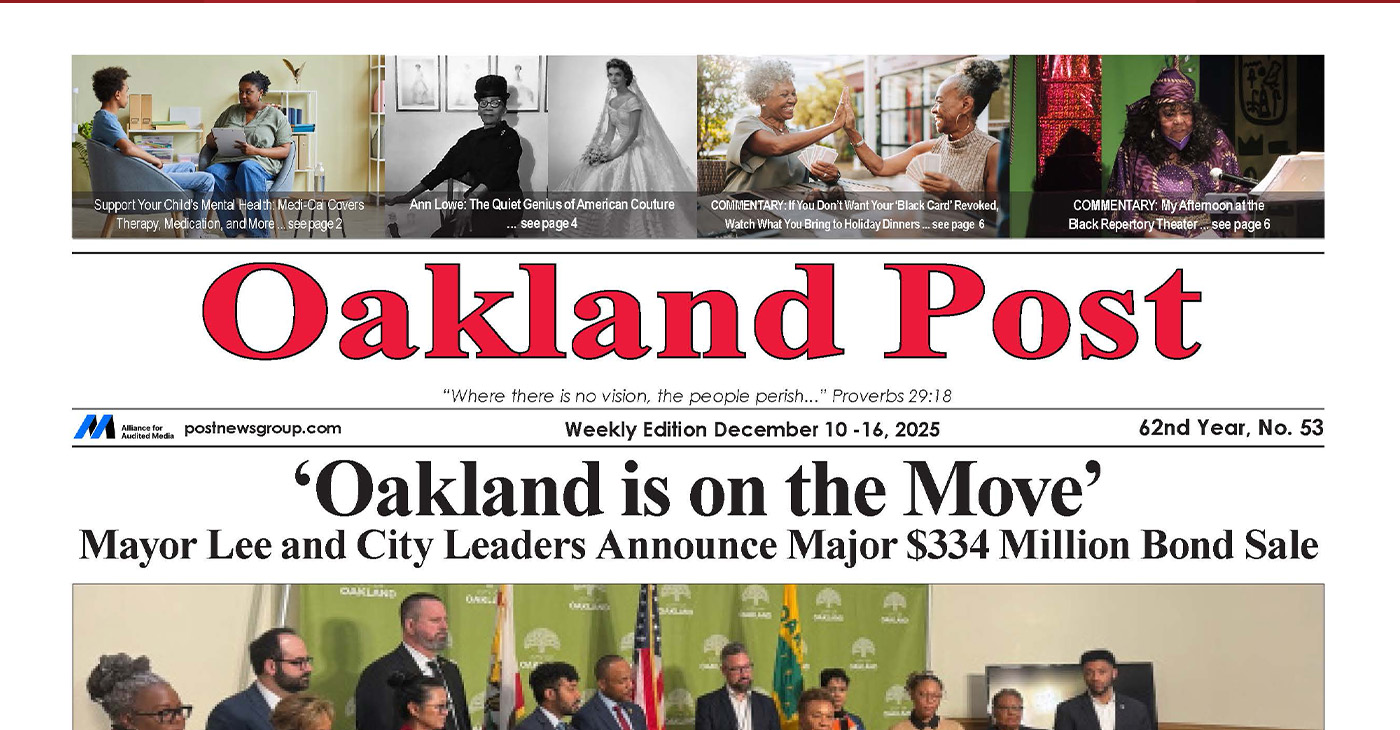
To enlarge your view of this issue, use the slider, magnifying glass icon or full page icon in the lower right corner of the browser window.
Alameda County
Seth Curry Makes Impressive Debut with the Golden State Warriors
Seth looked comfortable in his new uniform, seamlessly fitting into the Warriors’ offensive and defensive system. He finished the night with an impressive 14 points, becoming one of the team’s top scorers for the game. Seth’s points came in a variety of ways – floaters, spot-up three-pointers, mid-range jumpers, and a handful of aggressive drives that kept the Oklahoma City Thunder defense on its heels.

By Y’Anad Burrell
Tuesday night was anything but ordinary for fans in San Francisco as Seth Curry made his highly anticipated debut as a new member of the Golden State Warriors. Seth didn’t disappoint, delivering a performance that not only showcased his scoring ability but also demonstrated his added value to the team.
At 35, the 12-year NBA veteran on Monday signed a contract to play with the Warriors for the rest of the season.
Seth looked comfortable in his new uniform, seamlessly fitting into the Warriors’ offensive and defensive system. He finished the night with an impressive 14 points, becoming one of the team’s top scorers for the game. Seth’s points came in a variety of ways – floaters, spot-up three-pointers, mid-range jumpers, and a handful of aggressive drives that kept the Oklahoma City Thunder defense on its heels.
One of the most memorable moments of the evening came before Seth even scored his first points. As he checked into the game, the Chase Center erupted into applause, with fans rising to their feet to give the newest Warrior a standing ovation.
The crowd’s reaction was a testament not only to Seth’s reputation as a sharpshooter but also to the excitement he brings to the Warriors. It was clear that fans quickly embraced Seth as one of their own, eager to see what he could bring to the team’s championship aspirations.
Warriors’ superstar Steph Curry – Seth’s brother – did not play due to an injury. One could only imagine what it would be like if the Curry brothers were on the court together. Magic in the making.
Seth’s debut proved to be a turning point for the Warriors. Not only did he contribute on the scoreboard, but he also brought a sense of confidence and composure to the floor.
While their loss last night, OKC 124 – GSW 112, Seth’s impact was a game-changer and there’s more yet to come. Beyond statistics, it was clear that Seth’s presence elevated the team’s performance, giving the Warriors a new force as they look to make a deep playoff run.
Activism
Oakland Post: Week of November 26 – December 2, 2025
The printed Weekly Edition of the Oakland Post: Week of November 26 – December 2, 2025

To enlarge your view of this issue, use the slider, magnifying glass icon or full page icon in the lower right corner of the browser window.
-

 Activism4 weeks ago
Activism4 weeks agoOakland Post: Week of November 12 – 18, 2025
-

 Activism3 weeks ago
Activism3 weeks agoIN MEMORIAM: William ‘Bill’ Patterson, 94
-

 Activism4 weeks ago
Activism4 weeks agoHow Charles R. Drew University Navigated More Than $20 Million in Fed Cuts – Still Prioritizing Students and Community Health
-

 Bay Area4 weeks ago
Bay Area4 weeks agoNo Justice in the Justice System
-

 #NNPA BlackPress3 weeks ago
#NNPA BlackPress3 weeks agoBeyoncé and Jay-Z make rare public appearance with Lewis Hamilton at Las Vegas Grand Prix
-

 #NNPA BlackPress3 weeks ago
#NNPA BlackPress3 weeks agoLewis Hamilton set to start LAST in Saturday Night’s Las Vegas Grand Prix
-

 Activism3 weeks ago
Activism3 weeks agoOakland Post: Week of November 19 – 25, 2025
-

 #NNPA BlackPress4 weeks ago
#NNPA BlackPress4 weeks agoThe Perfumed Hand of Hypocrisy: Trump Hosted Former Terror Suspect While America Condemns a Muslim Mayor


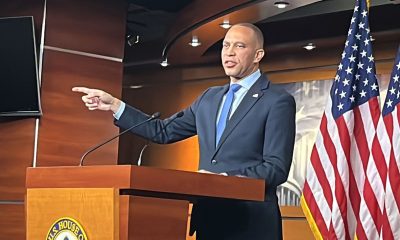

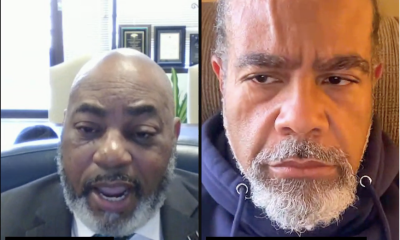



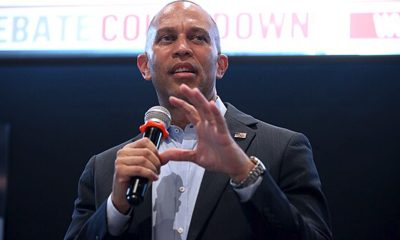

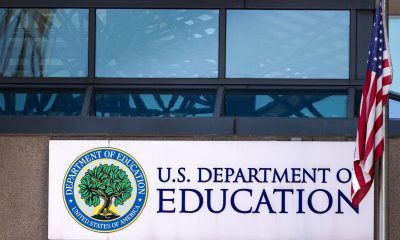









































2 Comments